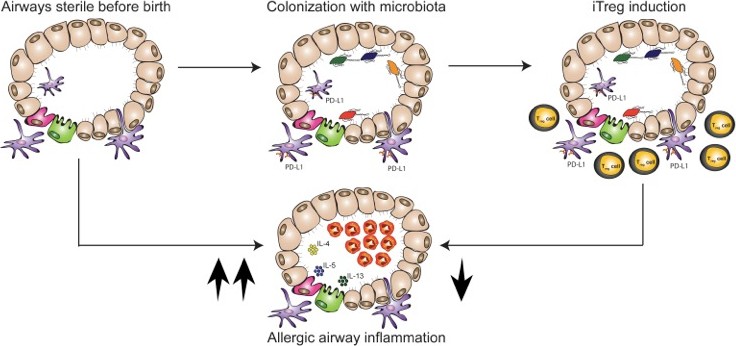Développement immunitaire néonatal
Chez l’homme comme chez la souris, le système immunitaire néonatal est immature et présente une propension aux voies immunitaires associées à l’allergie, ainsi qu’une capacité sous-développée à développer des réponses immunitaires contre les infections.
Dans des circonstances normales, le système immunitaire mûrit avec le temps et atteint une homéostasie où la réactivité immunitaire et l’inflammation sont en équilibre. Cependant, les caractéristiques de ce processus de maturation et les signaux qui le pilotent sont mal compris. Les voies intestinales et respiratoires sont stériles à la naissance et subissent de profondes modifications au cours de la période néonatale lorsqu'elles sont exposées pour la première fois aux microbes environnementaux.
Bien que l’on sache actuellement très peu de choses sur le microbiote des voies respiratoires, la composition exacte du microbiote intestinal d’un individu semble être déterminée par des facteurs présents au cours de la petite enfance. Il s'agit notamment du type d'accouchement (naturel ou césarienne), du régime alimentaire (du lait maternisé ou du lait maternel), de l'utilisation précoce d'antibiotiques et des conditions environnementales.
Nous étudions les mécanismes par lesquels le système immunitaire mûrit pendant la période périnatale. L'accent est mis sur la manière dont les expositions environnementales (prénatales ou postnatales) influencent ce processus de développement et sur les conséquences de ces environnements sur la susceptibilité aux maladies respiratoires à l'âge adulte. (Gollwitzer et coll.).




